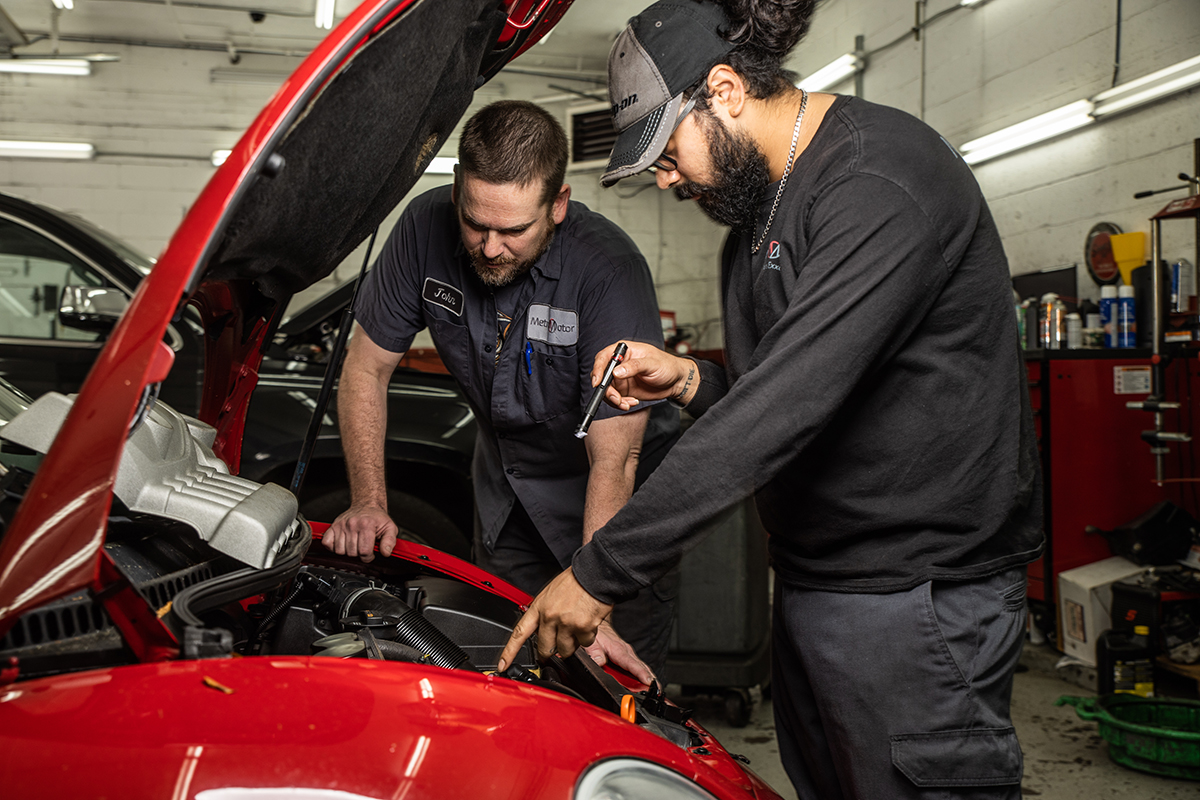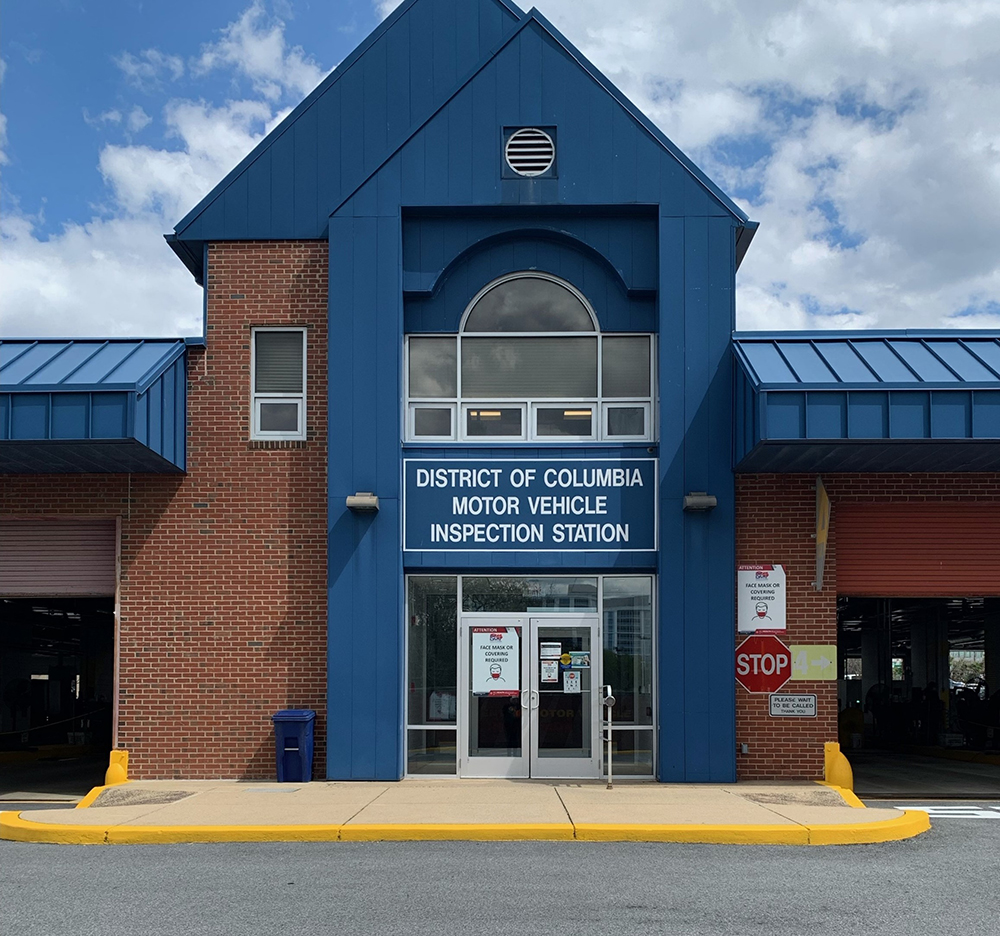Your Guide to D.C. Vehicle Inspections

Vehicle inspections in Washington, D.C., are a crucial part of ensuring that all vehicles on the road meet safety and emissions standards. The process is managed by the D.C. Department of Motor Vehicles (DMV), and every vehicle registered in the District must pass an inspection to maintain its registration. Whether you are a new resident, purchasing a vehicle, or renewing your registration, understanding how to navigate the inspection process is key to avoiding fines and ensuring your vehicle is roadworthy.
Please note: D.C. vehicle inspection information made available by Metro Motor is presented as general guidance. Be sure to consult the D.C. Department of Motor Vehicles (DMV) for the most up-to-date and accurate information.
Understanding D.C. Inspection Types: Safety Inspection & Emissions Inspection
The DMV conducts two main types of vehicle inspections in D.C.:
- Safety Inspection: This inspection checks that your vehicle meets the necessary safety standards to operate on public roads. It covers various components, including brakes, tires, lights, windshield wipers, and more. This inspection is mandatory for all vehicles, with specific exemptions for new vehicles and certain classifications.
- Emissions Inspection: The emissions test measures the amount of pollutants your vehicle emits. The goal is to ensure that your vehicle's emissions are within the acceptable limits set by D.C. environmental regulations. This inspection is required for most vehicles, except for certain models based on age, fuel type, or historical status.
Who Needs a D.C. Vehicle Inspection?
You must have your vehicle inspected in D.C. if:
- You’re a new resident. | New residents must get their vehicles inspected within 90 days of establishing residency in D.C.
- You’re renewing your registration. | Vehicles registered in D.C. must undergo inspection every two years. You’ll receive a notice in the mail when it’s time for your inspection.
- You’re purchasing a used vehicle. | If you purchase a used vehicle, it must pass an inspection before it can be registered in your name.
- You’ve received a notice. | The DMV may require a vehicle inspection if your vehicle is involved in an accident or if a law enforcement officer identifies potential safety or emissions issues.
Preparing for the D.C. Vehicle Inspection
Proper preparation can help ensure that your vehicle passes D.C. inspection on the first attempt.
Check Your Paperwork
Ensure you have your driver’s license, vehicle registration, and proof of insurance. These documents are required to complete the inspection.
Perform a Pre-Inspection Check
Consider doing a basic inspection of your vehicle before your appointment. Check the condition of your tires, lights, brakes, and windshield wipers. If you notice any issues, have them repaired before your inspection. Metro Motor can complete this step for you!
Emissions Readiness
Ensure your vehicle’s engine is warmed up, as a cold engine may not perform well on the emissions test. Also, if your vehicle has a check engine light on, it is likely to fail the emissions test.
Where to Get Your Vehicle Inspected
Unlike in Virginia and Maryland, where Metro Motor offers state vehicle inspections at a number of our convenient auto repair locations, D.C. residents must get their vehicles inspected at the D.C. DMV Inspection Station:
1001 Half St. SW
Washington, D.C. 20024
Contact and inspection hours
You do not need an appointment for a D.C. vehicle inspection. Inspections are conducted on a first-come, first-served basis, so arriving early can help reduce your wait time.

Image: Entrance to the DMV Inspection Station in Southwest D.C. Courtesy: D.C. Department of Motor Vehicles.
What to Expect During the Inspection
When you arrive at the DMV Inspection Station, you will join the queue of vehicles waiting to be inspected. Ensure your vehicle is in good working order, and have your documents ready. A DMV technician will then conduct the inspection, which includes both a visual inspection and a mechanical test. They will check your vehicle’s safety features and conduct an emissions test. The entire process typically takes about 30 minutes.
Once the inspection is complete, the technician will inform you if your vehicle has passed or failed. If it passes, you will receive an inspection sticker that must be affixed to your vehicle's windshield. If it fails, you’ll receive a report detailing the reasons for the failure.
What to Do If Your Vehicle Fails D.C. Inspection
If your vehicle fails the inspection, don’t panic. The DMV will provide you with a detailed report that outlines the specific reasons for the failure. Carefully review the inspection report to understand what needs to be repaired. The report will specify whether the issue is related to safety, emissions, or both.
Then, take your vehicle to a certified mechanic or auto repair shop to address the issues listed on the report. The good news? Metro Motor has convenient vehicle service centers located across the D.C. area, including a location in Capitol Hill that’s just a mile or 5-min. drive from the DMV Inspection Station. We’ll ensure all problems are fully resolved, so you can be confident in your vehicle’s condition.
After making the necessary repairs, you can then return to the DMV Inspection Station for a re-inspection. You are allowed one free re-inspection within 20 calendar days of your initial inspection. If you return after this period, you will be required to pay the inspection fee again.
Fees & Payment
There is a small fee for a vehicle inspection in D.C. Payment can be made by cash, credit card, debit card, or check. If your vehicle fails the inspection and you need a re-inspection after the 20-day grace period, you will need to pay this fee again.
Exemptions & Special Cases
Certain vehicles may be exempt from the standard D.C. inspection process:
- New Vehicles: Vehicles less than four years old are exempt from the safety and emissions inspections. However, owners must still pay a new vehicle fee and display an inspection sticker.
- Electric Vehicles: Fully electric vehicles are exempt from emissions testing but must still pass the safety inspection.
- Historic Vehicles: Vehicles registered as historic or antique are generally exempt from emissions testing but may still require a safety inspection depending on their age and condition.
Inspection Tips & Best Practices
Want to get through the D.C. vehicle inspection quickly and efficiently?
Arrive Early
The inspection station can get busy, especially on weekends or around the end of the month. Arriving early will help you avoid long wait times.
Keep Your Vehicle Maintained
Regular maintenance can help prevent unexpected issues during the inspection. Keep your vehicle in good working order to increase the chances of passing on the first try.
Monitor Your Inspection Date
Don’t wait until the last minute to get your vehicle inspected. Monitoring your inspection date and planning ahead can help you avoid late fees or penalties.
Stay Informed
DMV regulations and D.C. inspection requirements may change over time. Stay informed by regularly checking the D.C. DMV website or subscribing to updates.
Know Before You Go
Getting your vehicle inspected through the D.C. DMV is a straightforward process, but it requires attention to detail and proper preparation. By understanding the types of inspections, knowing when and where to go, and ensuring your vehicle is in good condition, you can navigate the inspection process with ease. Keep your vehicle maintained, stay informed of any changes to the regulations, and make the DMV inspection process a routine part of your vehicle ownership responsibilities in Washington, D.C. As always, Metro Motor is here to help with any auto repairs, maintenance, or safety and emissions improvements to keep your vehicle roadworthy in the District.
Vehicle care information made available by Metro Motor is presented as helpful advice for general maintenance and should not be construed as instructions for at-home vehicle service. Be sure to consult your owner’s manual and a licensed, professional mechanic for diagnostics and repair.
